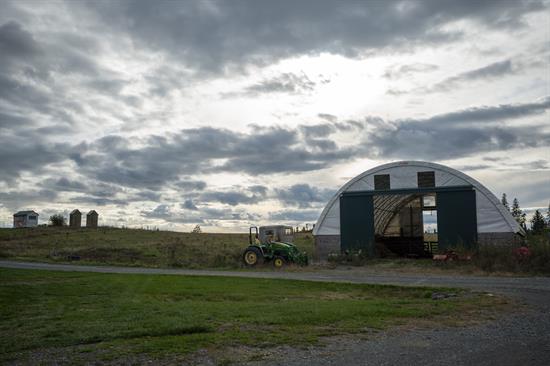Press Releases
Pingree, Heinrich Lead Charge to Reach Net-Zero Emissions, Boost Profitability in US Agriculture
Washington,
April 22, 2025
In honor of Earth Day, Congresswoman Chellie Pingree (D-Maine) and Senator Martin Heinrich (D-N.M.) reintroduced the Agriculture Resilience Act (ARA), comprehensive legislation that aims to help the U.S. reach net-zero greenhouse gas emissions in the agricultural sector by 2040—while giving America’s farmers more tools and resources to increase their profitability. “From historic droughts and wildfires to devastating floods and extreme weather, America’s farmers are directly impacted by the climate crisis,” said Pingree, a longtime organic farmer and senior member of the House Agriculture Committee. “With the Farm Bill in limbo and the Trump Administration actively undermining farmers’ interests, bold legislation like the Agriculture Resilience Act is more urgent than ever. These goals are ambitious—but they’re achievable. By helping farmers adopt practices that boost resilience and profitability, this bill charts a path to not only create a more sustainable future for America’s agriculture sector, but ensure greater economic viability for our farmers as well.” “New Mexico’s agricultural producers and rural communities rely on the health of our land and water to sustain their families and communities. They are also the first to feel the impacts of climate change. That is why we need to provide our farmers and ranchers with new tools to not only protect their land and way of life, but also be part of the climate solution," said Heinrich. “I’m pleased to reintroduce the Agriculture Resilience Act, which sets a national goal of achieving net-zero emissions in agriculture by 2040 through farmer-led, science-based initiatives. I’ll continue working to bring our communities the tools they need to improve soil health, expand conservation programs, increase research into climate-friendly agricultural practices, and support on-farm renewable energy projects.” To reach net-zero agricultural emissions within the next 15 years, the ARA focuses on six concrete policy areas—and solutions that are rooted in science. These goals include:
The ARA is supported by dozens of national and local organizations including American Farmland Trust, the World Wildlife Fund, and Maine Organic Farmers and Gardeners Association, as well companies like Stonyfield and Organic Valley. Click here for a full list of endorsers. READ WHAT ORGANIZATIONS ARE SAYING ABOUT THE ARA. An organic farmer since the 1970s, Pingree has been recognized as a national policy leader on sustainable food and farming. Pingree is the founder of Congress’s first-ever Bipartisan Food Recovery Caucus and is Vice Chair of the House Sustainable Energy and Environment Coalition Climate and Agriculture Task Force. In addition to serving on the House Agriculture Committee, Pingree is a member of the powerful House Appropriations Committee, where she serves as Ranking Member on the Interior and Environment Subcommittee and on the Agriculture Subcommittee. ### |

